Wed, 11 Mar 2015 . Last updated Sat, 28 Mar 2015 10:21
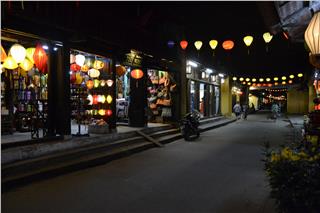
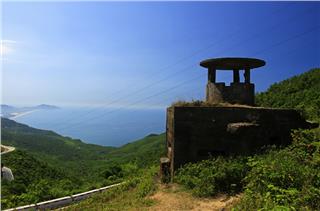
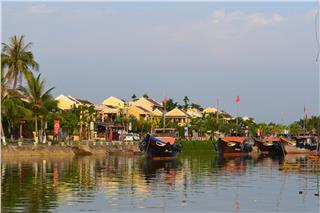
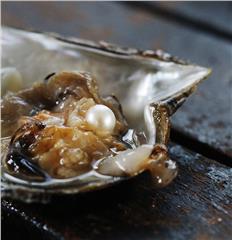
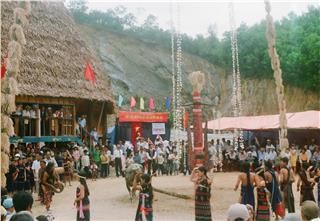
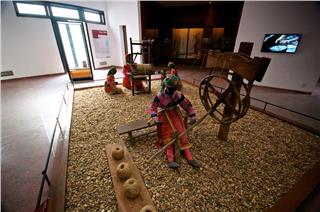

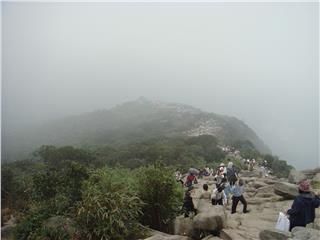
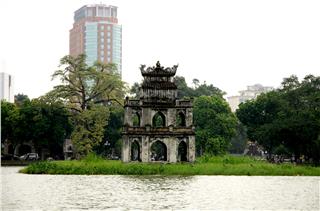
Haiphong is voted one of the 26 suitable and attractive destinations solo travel by BuzzFeed. In addition to sea tourism, the city is also known for interesting tourist sites like Opera House with modern architecture and traditional old houses as well as spiritual tourist destination such as temple, unique culinary culture, etc. All of these things make the city an attractive tourist site.
Haiphong is one of five centrally run cities and the 3rd city of Vietnam after Ho Chi Minh City and Hanoi. From Hanoi, you can go along Highway 5A or travel by Hanoi - Haiphong railway in a few hours to reach the city center. In addition, tourists can travel Haiphong by air and sea. Haiphong is a famous as a sea tourism city. Cat Ba Island is recognized by UNESCO as a world biosphere reserve.
In addition, the city also has interesting tourist sites in the metropolitan area. They are historic and cultural and beauty spots which fully characterize local people in modern time. Visit to Haiphong are firstly impressed with unique, diverse architecture of the harmonious blend between Asian and European cultures. The blend creates a unique urban beauty with elegant and powerful features. Haiphong city is characterized with rivers. Winding inner-city like Tam Bac through old quarters creates a poetic beauty which is the source of inspiration for many artists.
Haiphong has its own rhythm. Old space and old architecture mixing with modern architecture create a nostalgic feature of the port city. The French-styled architecture in the city center is still preserved. The first thing to mention is the city theater, a long-standing building located in the city center. In French colonial history, only three cities of Vietnam, i.e. Hanoi, Haiphong and Ho Chi Minh City had Opera House. Haiphong City’s Theatre is one of the cultural architectural monuments representing one stage of Vietnam’s architecture with well-arranged unique decorative motifs and reliefs which have high artistic values.
The City Theatre was built in 1904 by French architects. The construction was designed elaborately like Parisian theater and replicates France’s theaters in the medieval age. The harmonious combination between modern and ancient features creates a beautiful, impressive, attractive theater. The inside beauty of the City Theatre is exalted by the architectural style French civilization of the nineteenth century. Architects took advantage of the curves to create vivid space of the construction.
The city theatre is political and cultural place of French people and rich natives. At that time, only French troupes or famous troupe in the country were invited to this place. Today, big festivals, special cultural and art shows as well as other important events are organized here. Despite all restoration, the theater remains intact. It is a unique, impressive architectural work of art attracting many visitors to Haiphong City.
Located at 51st Nghe Street, Van Huong Ward, Do Son District, Haiphong, this old house is one of the attractions in Haiphong that inspires a strong impression thanks to uniform color mix which makes it an ancient, solemn style. The house is situated on high, airy position, showing aesthetic sophistication of the owner. The house was moved from Thanh Hoa in 2004 by Mr. Hoang Dinh Phuc. Phu rebuilt his house to suit the more than a century old house he bought. According to Phuc, this house isn’t too much large and high. It has Vietnam’s ancient architectural design, i.e. Hue royal style with dragon like curved lines. The roof is decorated with leaf-shaped lines which look like dragon fin.
Ancient houses of this place not only preserve traditional values but also feature out this land and local people. Such constructions motivate visitors to love Vietnam’s culture. Located at the heart of the noisy, boisterous city, the house at number 74, Dai Hoc Dan Lap Street, Du Hang Kenh Ward, Le Chan District, Haiphong City seems to be in a different world with ancient, green space. The owner of the house, Mr. Van Nam, who has great passion for ancient, is very proud of his house. The passion for ancient values motivates him to preserve this old house for decades.
Van Nam’s house is made of ironwood with the traditional structure of 3 compartments and 2 wings. Beams are made of ironwood blocks. The house is decorated with Nguyen Dynasty’s style. Inside space inside and the decoration give a cozy feeling of traditional features. According to Nam, Haiphong has more than 200 old houses. Several of them have been kept intact for more than 200 years thanks to the wishes of former generations. The rest are bought by such people like Van Nam who then place them in their land and keep them as treasures.
Cuisine is a unique feature typical for regions and associated with culture and people. Tourists to Haiphong are fond of many tasty dishes, including brown noodle with river-crab soup. Actually, brown noodle with river-crab soup got famous nationally and internationally because in September 2012, the Asian Record Association recognized Haiphong brown noodle with river-crab soup as one of 12 delicious dishes of Vietnam in the list of Asian good food. Therefore this traditional dish has been preserved and its brand has been developed further.
People use tongue and eyes to enjoy brown noodle with river-crab soup. Several people compare the dish to unique picture of food. Colors are well missed together. The brown noodle with river-crab soup features out aesthetic value and personality of locals. The dish tastes strong and sweet, elegant but tough. Special color mix and unique implication toward the personality of people in this coastal city make the dish be recognized internationally.
Haiphong people are not picky in choosing accommodation and food. They seem to only pay attention to the food and service quality. Therefore, apart from brown noodle with river-crab soup, daily dishes from snails also refer to a special culinary feature of this land. Customers choose snails in small baskets and cook will make foods from these ingredients. Haiphong is characterized with stir fried snails. Spicy stir-fried snails still preserve typical taste of snails with the sweet sauce, buttery taste of coconut and spicy taste of lemongrass and peepers. It’s simple to make food from snails. However, the elegant and rich features make this food attractive to visitors.
Modern streets and building are being developing with the existence of hundred-of-year classical constructions, making Haiphong as an urban area with the reconciliation between ancient and modern style. Located in the city center’s alley with surrounded by residential areas, Do Pagoda is a spiritual address attracting many visitors.
Do Pagoda is also known as Linh Do Pagoda. According to legend, in 1288, Tran Hung Dao King chose to stay in An Duong to study naval bat le strategy to destroy Omar’s army in Bach Dang. Red-head group in Linh Do Pagoda were in charge of food supply for Tran Hung Dao’s army. The kitchen of this peaceful pagoda was always busy when the red-head group was there. That’s why this place was called Do (Heat) Pagoda to commemorate the credit of Tran Hung Dao. At the center of the harem, there is a 5.5 meters height statue of Shakyamuni Buddha. The lotus shaped pedestal is 2.9 meters high including 500 lotus petal carved with Tran Dynasty’s style. The statue of Sakyamuni here is the largest wooden Buddha statue in Vietnam. Behind is the 11-meter height statue of Buddha with 1,111 small gilded statues seating in bodhi leaves symbolizing boundless Buddhism world.
Ve Pagoda is near Do Pagoda. This artistic architectural construction remains relatively intact. Visiting this place, visitors can admire precious ancient artifacts like statue system. In this place, the legend about Buddha’s birth is vividly recreated by the vivid miniature of Lumbini garden. Legend has it that Queen Maya held Ashoka tree when giving birth to Buddha. When Buddha was born, 9 dragons sprayed perfumed water to bathe him. Sakka and Brahma and female angels offered flowers to welcome him. After appearing on earth, the Buddha walked seven steps. Each step created one lotus blossom. Then, he put his left arm to the sky and put his right arm down to the land and said: “Above me is sky, under me is land. I’m the only in between”.
Referring to Buddha’s dialog Buddha, Ve Pagoda has statues about Ve pagoda has statues about how Buddha preached Kieu Tran Nhu and his siblings about Shakyamuni Buddha and so on. According, statues of the “Buddha and his disciples gathering” located in garden in form of the mediation place are made of white stone accordance with original Buddha models. Ve Pagoda or Hoa Long Pagoda is a large-scale ancient pagoda with unique art architecture. This model has been preserved and developed into a cultural and religious center attracting visitors to Haiphong.
Source: VTC10 - NETVIET

 Đặt vé máy bay cho người Việt?
Bấm vào đây
Đặt vé máy bay cho người Việt?
Bấm vào đây
Our service uses cookies for technical, analytical and marketing purposes. See our Cookie và Privacy policies for more information. If you agree to this, just keep browsing.


